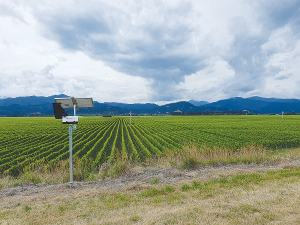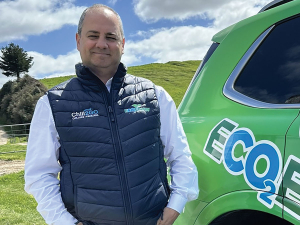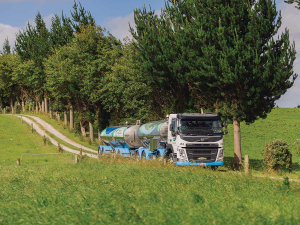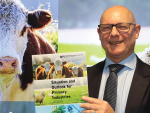Working on spore trapping as part of his microbiology studies was when Lewis Collins first thought about the challenge of analysing airborne diseases.
He realised that by the time useful data was received, it was typically already too late to avoid an outbreak within a crop. With his mechatronic engineering cap on, Collins had a vision of automating the process so that growers could get a realtime understanding of the minuscule pathogens in their environment.
The result is Bioscout – a high-tech solution that takes the guesswork out of detecting fungal crop diseases and allows a better focus on other orchard tasks.
Collins says, typically, growers rely on intuition and symptomatic indicators to manage disease in production crops – like Alternaria fruit rot, Brown spot, Blackleg, Downy and Powdery mildew – which often results in spraying too much, too often and at the wrong time.
Bioscout is said to allow growers to see the ‘unseeable’ and react to a disease presence weeks before it impacts yields. It also reduces preventive sprays by understanding the general disease risk. Three installations are currently in their first season of use in New Zealand.
The BioScout Platform is fully autonomous and can operate for many years on end without human intervention.
It also has a ‘worldfirst’ airborne disease tracking ability. This is equipped with a comprehensive suite of environmental sensors, including monitoring weather conditions and live spore counts. This allows the system to provide the complete picture of disease risk at field-level resolution, typically up to two weeks before symptoms become apparent in the crop.
The system works by drawing air into the units causing particles to adhere to a sticky strip. These particles are constantly photographed using automated microscopy. From here, an AI function compares the photos with an expanding database of pathogen images.
This allows the system to track the spread of fungal diseases on farms and orchards, providing growers and agronomists with real-time, location and disease specific data. As a rule of thumb, one Bioscout device is able to offer informative data for 20 to 100 ha. However, unit density also depends on topography and target diseases decided by a site survey. The full BioScout dashboard can be viewed on a laptop. This displays a map of an individual property, showing the location of the devices, all current pathogen warnings and weather information.
The company suggests that having a better understanding of how critical environmental conditions affects your disease risk and allows growers to apply fungicides exactly when needed for maximum effectiveness and an improved return on investment.
At the same time, it also offers peace of mind by removing the “unknown factor”, while also improving confidence in reducing fungicide use and offering the choice of switching to more biological solutions.


















